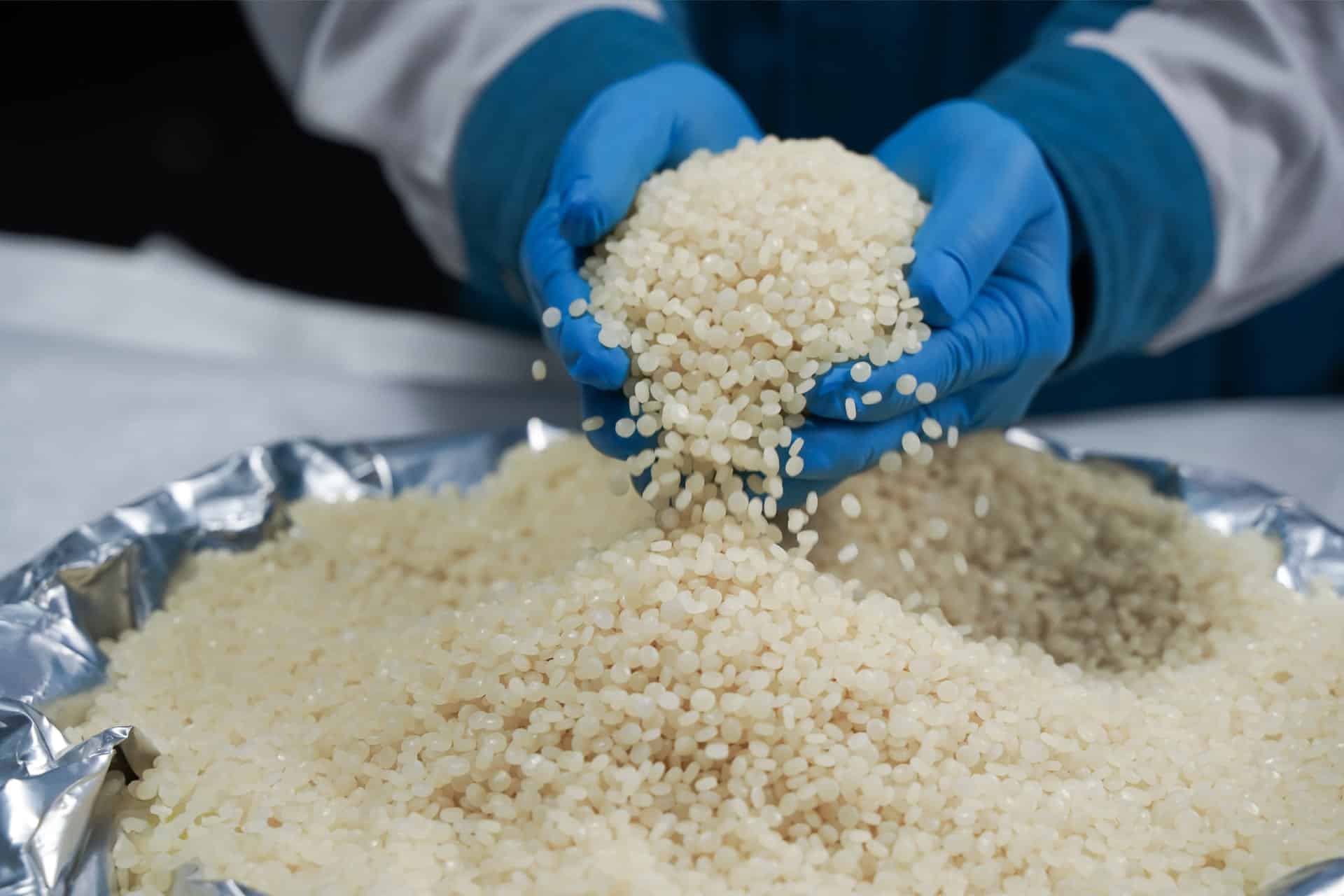PHA Bioplastics in the Cosmetics Sector
PHAs represent a sustainable alternative in the cosmetics sector. Their biocompatibility and biodegradability make them attractive to consumers and manufacturers alike. Ecological standards are strengthening their market position, as is the desire to change the way we consume.

PHA Sourcing supports the cosmetics industry
We help companies of all sizes make the transition to sustainable materials. Thanks to our biodegradable PHA solutions, your unique project can come to fruition without slowing down your business. We meet your requirements, even on a large scale. Our aim is to offer you high-performance alternatives to traditional plastics, and we are always available to discuss these with you.
PHAs (polyhydroxyalkanoates) are biodegradable polymers of natural origin. It’s logical, then, that they are attracting growing interest in the cosmetics industry. These materials offer both environmental benefits and biocompatible properties. Let’s take a look at how this biopolymer is being used in the world of beauty.
Zoom: What is PHA?
Known scientifically as polyhydroxyalkanoates, these biopolymers are produced from microorganisms. Following a fermentation process and nutrient stress, the famous bacteria produce the plastic. Once harvested and prepared, these biosourced granules can be moulded to suit (almost) any project. These polymers are used to make a variety of products, including PHA packaging, medical devices and cosmetics.
When cosmetics resonate with microplastics
In water and even in the body, microplastics are gaining ground. A study published in Environment International in 2022 demonstrated their presence in the bodies of several volunteers. This impact on health is a matter of urgency, so our cosmetic products need to change. According to the Rethink Plastic alliance, 7 kg of plastics from cosmetics are released into the environment every minute in Europe. Fortunately, we can do things differently.
The advantages of PHA in the cosmetics industry
An ecological and biodegradable bioplastic
PHAs are unique in that they are 100% biodegradable, leaving no harmful residue. It doesn’t release any dangerous substances, either for the skin or the planet. With a reduced environmental impact and fewer concerns regarding waste management, PHA helps to reduce the pollution linked to cosmetic products. Containers are no longer a problem, as they degrade naturally.
PHA is biocompatible
This is one of its strengths. PHA is a biosourced plastic and therefore painless for humans. Its biocompatibility makes it a safe choice for skin care and cosmetics containers. The different types of PHA do not cause irritation or skin allergies, as they are tolerated by all skin types.
Properties of PHA in cosmetics
PHAs also have moisturising and film-forming properties. They help keep the skin hydrated. Ideal for producing skin masks! What’s more, they can improve the texture of cosmetic formulations. Yes, if you look at the composition of cosmetics, there is plastic. Finally, the exfoliating microbeads in scrubs can be made from PHA.
PHA bioplastics: prospects for the cosmetics industry
Growing awareness and responsible consumption
The future of PHAs in cosmetics looks promising. As society moves towards responsible consumption, their popularity is growing. Indeed, consumers are increasingly attentive to the ingredients they buy and the ingredients they use. So offering eco-responsible containers and content represents an opportunity: will you be able to seize it?
Technological advances in PHA
In addition, technological advances are making it easier to produce PHAs. This could reduce costs and increase their availability. Cosmetics manufacturers can explore new and innovative formulas. Progress and beauty are linked. For biodegradable and sustainable materials: PHAs offer a field of possibilities.
The PHA is helping to develop zero-waste cosmetics
PHAs play a key role in the fight against plastic waste. As biodegradable polymers, they help to reduce the environmental impact of cosmetic products. Imagine all those bottles and containers in the bathroom that naturally deteriorate over several weeks. No more sorting, no more landfill, less CO2 emissions and less plastic pollution in the ocean.
Some practical applications of PHAs in cosmetics
PHA for cosmetic formulations
As mentioned earlier, PHAs have a wide range of cosmetic applications. For example, they are used in moisturisers, serums and masks. Thanks to their film-forming properties, these bioplastics form a protective barrier on the skin.
Make-up and hair care: PHA is king
The different types of PHA can also be incorporated into make-up products. Their smooth texture improves product application and hold. They are also frequently used in the formulation of specific products for sensitive skin. They are therefore suitable for reactive or sensitive skin, helping to soothe irritation and reduce redness.
Contact
Let’s Work Together on Your Next Sustainable Project
Ready to switch to PHA or explore how it can revolutionize your products? Contact us to discuss how we can support your sustainability goals with scalable PHA solutions.